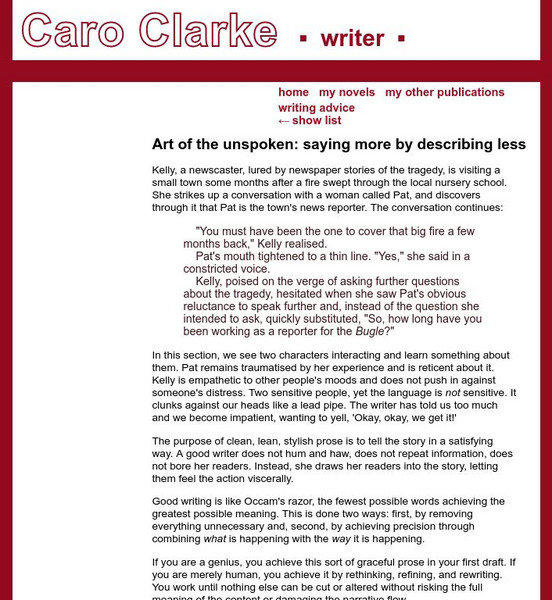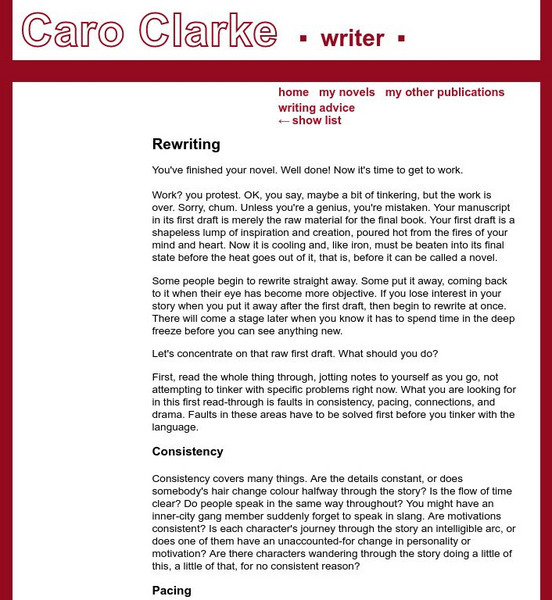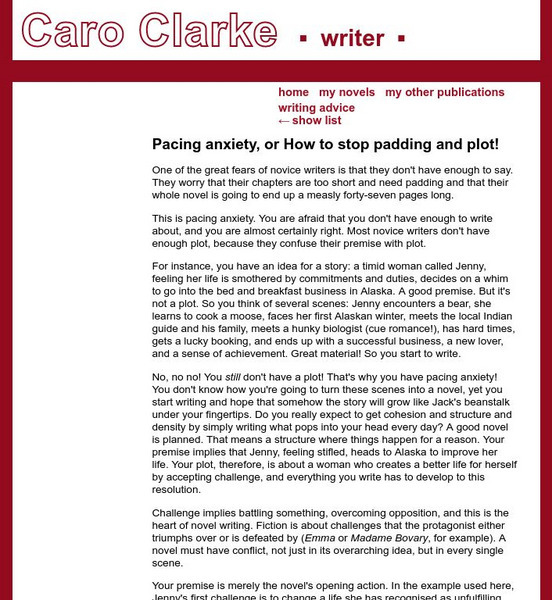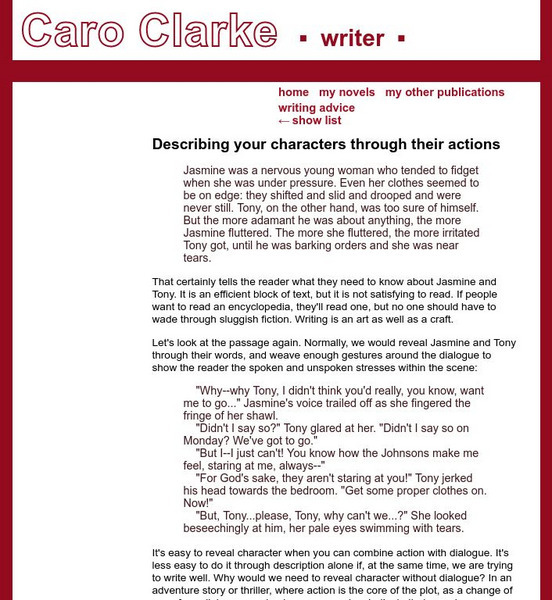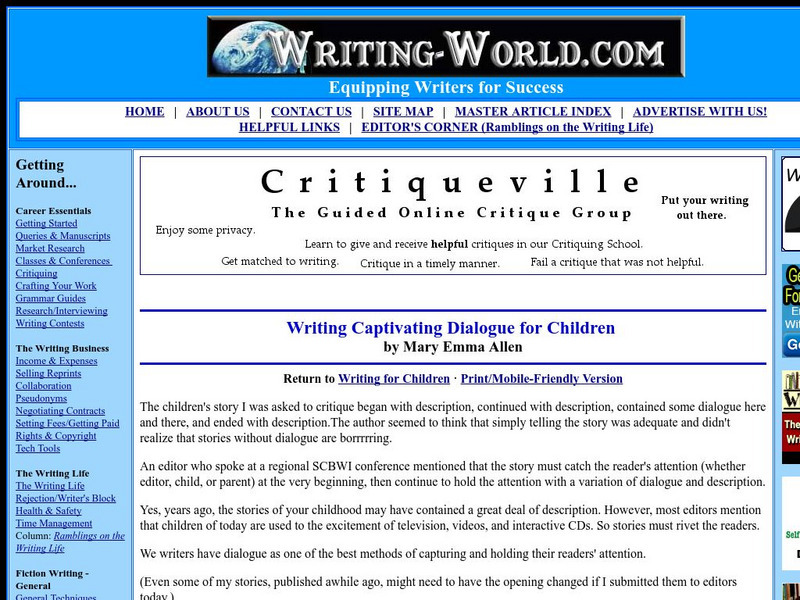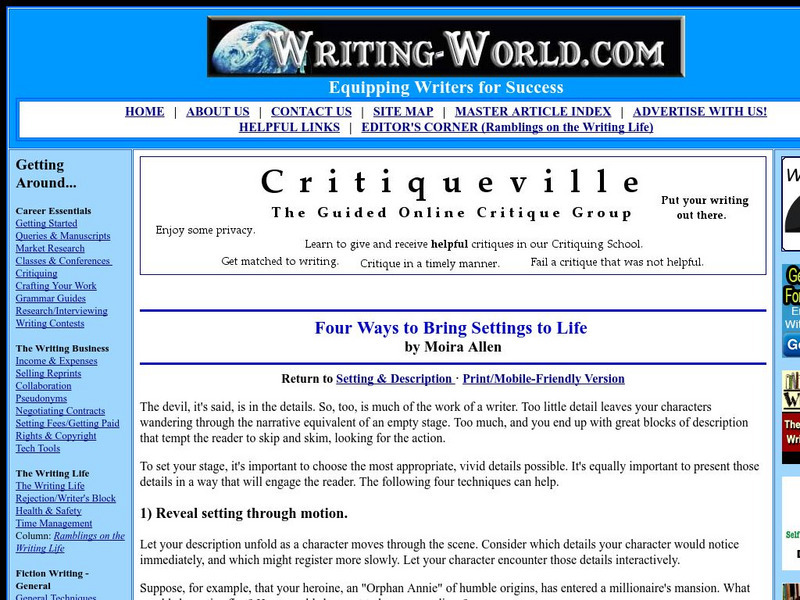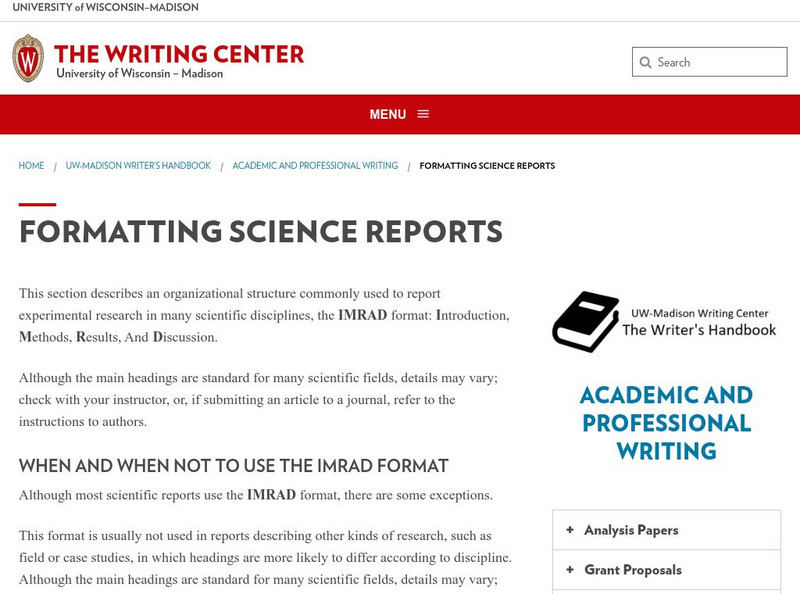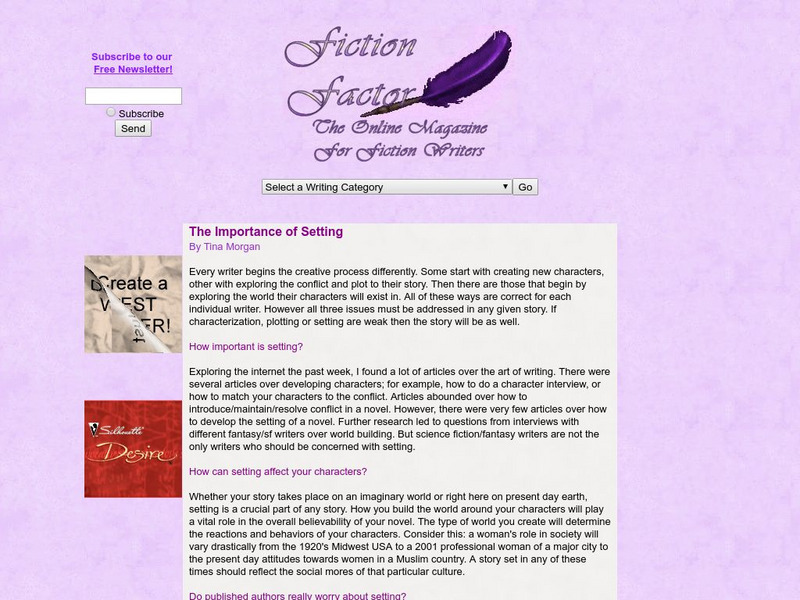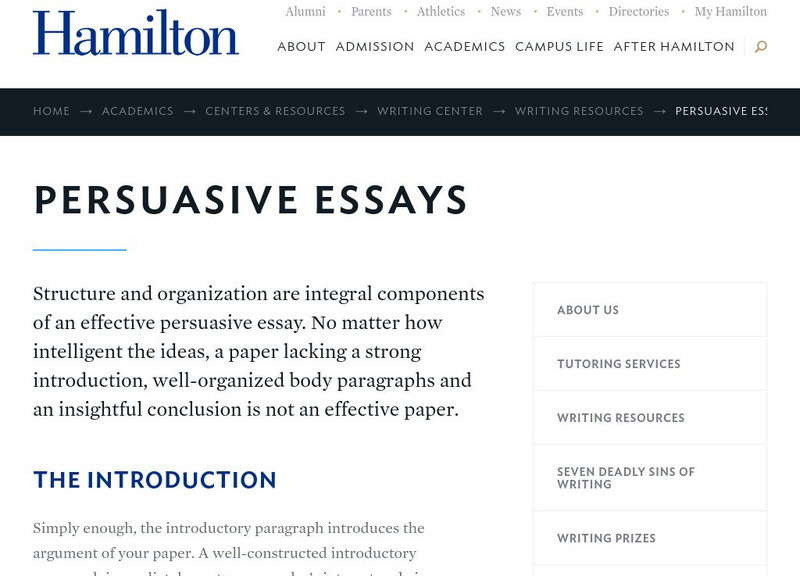Hi, what do you want to do?
Caro Clarke
Writing Advice: Don't Get It Right the First Time
How much of your novel have you written? Do you keep starting it and never finishing it? Learn the answers to these questions in this novel-writing advice piece.
Caro Clarke
Loving Your Characters Too Much
This article is the fifth in a series that is designed to help new authors with their new novels. This lesson focuses on your main character and what happens when that character lacks character flaws.
Caro Clarke
Caro Clarke: What Is Conflict?
This is the sixth in a series of articles designed to help the new writer with their novel. This article focuses on conflict and how it effects the characters and the plot of the story. W.11-12.3a Narratives
Caro Clarke
Not Stopping the Reader: How to Avoid Stumbling Blocks
This is the eighth article in a series that focuses on helping the new novel author. This article looks at how the author can avoid creating stumbling blocks that disrupt the flow of the novel.
Caro Clarke
A, B, and C Characters
This is the ninth article in a series that focuses on helping the new novel author. This article focuses on what the author calls "A, B, and C Characters," used to describe the different levels of characters.
Caro Clarke
Explaining Too Much: Why More Is Less
This is the eleventh article in a series that is designed to help the new novel author. This article focuses on how to eliminate needless information in your novel. The key is to not explain too much about the action.
Caro Clarke
The Art of the Unspoken: Saying More by Describing Less
This is the thirteenth article in a series that was developed to help the new novel author. This article focuses on how good descriptions aren't necessarily connected with a lot of words, good descriptions are clean and to the point.
Caro Clarke
Historical Fiction: Who Rules?
This is the fifteenth article in a series designed to help the new novel author. This article focuses on the genre of historical fiction and the role of the author. Is the author a researcher or a story-teller?
Caro Clarke
Rewriting
This is the 17th article in a series that helps the new fiction author with the final step--revision.
Other
Fiction Writing Tips: Creating a Vivid Setting
Some excellent guidelines to consider when evaluating your setting in a short story or novel. Discusses the importance of setting, some examples, as well as practical advice in setting your story. W.11-12.3d Sensory/precise lang narratives
Caro Clarke
Caro Clarke: Description: What's It For?
This is the twelfth article in a series that is designed to help the new novel writer. This article focuses on how to effectively use descriptions in any writing.
Indiana University
Indiana University: Writing Services: Incorporating Evidence Into Your Essay
This handout explores how to effectively incorporate evidence to support your claims into your paper. It provides weak and strong examples to show effective ways to incorporate evidence clearly and cohesively. W.9-10.1c...
Other
Monash University: What Makes a Good Essay?
Read this example essay with its highlighted comments and labeled parts to get a good grasp of what an effective essay does. United States students should note that the documentation style is slightly different in this example. For more...
Caro Clarke
Writing Advice: Where to Start?
This writing tutorial focuses on helping the aspiring author find a good place to start on his or her fiction.
Caro Clarke
Caro Clarke: Pacing Anxiety, or How to Stop Padding and Plot!
This is the seventh installment of a series giving advice to the author who is new to writing novels. This article focuses on how to take your characters and use them and their conflicts to develop the plot of your story. W.9-10.3b...
Caro Clarke
Describing Your Characters Through Their Actions
This is the tenth in a series of articles designed to help the new novel author. This article focuses on how to develop characters through their actions instead of simply relying on dialogue and description of thoughts. W.11-12.3d...
Online Writing Lab at Purdue University
Purdue University Owl: Writing About Literature
Purdue University's Writing Lab offers some hints and tips for writing about literature, including how to construct a thesis and how to handle secondary material.
Other
Writing world.com: Writing Dialogue for Children
A good site for teachers and writers looking to write for children, or teach children how to write dialogue. Includes tips and guidelines.
Other
Writing World: Four Ways to Bring Settings to Life
A great resource outlining four major ways to make settings appear more real and genuine in fiction. Deals with themes such as motion, experience, mood, and the senses. W.11-12.3d Sensory/precise lang narratives
Organization for Community Networks
Organization for Community Network: Writing Successful Paragraphs
How can you learn to write a successful paragraph? This site features a lesson plan to help your students sharpen their writing skills.
University of Wisconsin
University of Wisconsin: Writing Center: Formatting Science Reports
This site outlines the necessary elements of a scientific report. The site is broken down into the follow segments: title, abstract, introduction, methods, results, and discussion. Within each section is a contents section as well as a...
Other
Fiction Factor: The Importance of Setting
An interesting article concerning the importance of setting to any piece of fiction. Gives good information about how setting affects characters and "world-building."
Joe Landsberger
Study Guides & Strategies: Writing Persuasive Essays
This site focuses on the student learning how to write strong persuasive essays. Strategies are provided to help the student complete a persuasive writing assignment.
Other
Hamilton: Essentials of Effective Persuasive Essays
This resource provides good insight on how to structure a well organized effective persuasive essay.











